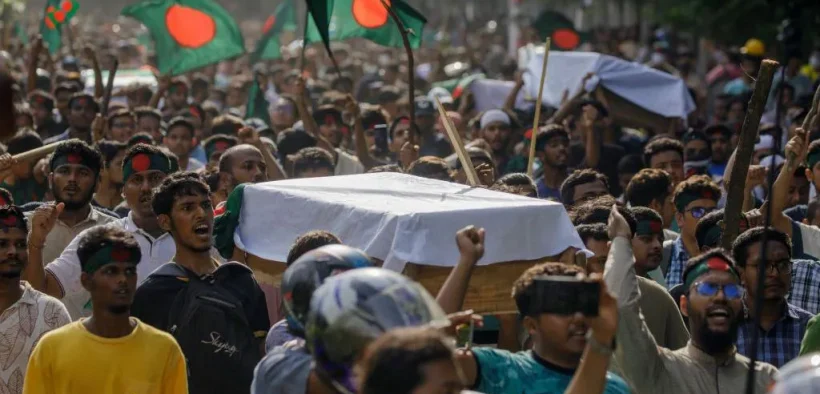Saluting the spirit of our young people

There is no shame in admitting that in the last few days many of us have cried helplessly, over the senseless deaths of students—teenagers or in their early twenties—the same age or close to the ages of our children. The first time we saw the video of Abu Sayed, one of the coordinators of the movement in Rangpur, being shot to death as he spread out his hands in surrender, our hearts broke at the ruthlessness of a law enforcer, repeatedly shooting at a young man who was practically unarmed. But our hearts filled with awe at the bravery of this young man who was so steadfast in a cause that demanded equal opportunity for young people to compete for government jobs.
Amidst the anguish and despair, this is what stands out the most—the spirit and courage of our young people. Our young students have proved to us once again that they are a conscious generation—contrary to common perception of them. They are well aware of the reality they are surrounded by and do not live in a bubble. We got a glimpse of this clarity of purpose during the 2018 Road Safety Movement by school students after a few of their fellow students were crushed by a raging bus at a bus stop. Their outrage took a positive form as they organised themselves into monitoring groups and started checking vehicles for their fitness, licenses etc. They were doing the job the traffic police were supposed to be doing and trying to implement basic road safety rules that should have been enforced by the government a long time ago. They showed us what their state had failed to do, which was to keep people safe from the road crashes we have become notorious for. On the streets, we saw uniformed school kids stopping vehicles—even VIP cars going the wrong direction were turned back—and checking documents. What we saw in those young faces was hope, belief in a better future, a saner world where people do not have to worry whether they will come home alive, every time they step into the streets. Their selflessness, determination and immense courage, gave us an optimism we had forgotten how to feel anymore. Sadly, their movement was nipped in the bud with violence and intimidation, though it didn’t erase the fact that they had made history during those days and shown the country their worth as leaders.
The anti-discrimination protests for quota reform started the same year and was considered successful as it led to the government to abolish the quota system altogether. This move, however, done in haste and possibly in a huff, proved to be controversial when the High Court ruled in July 2024, that it was unconstitutional and had to be scrapped leading to the second anti-quota protests. As we know, the anti-discrimination movement was never one to abolish all quotas but to come up with a logical, fair percentage for the various marginalised groups.
The young leaders of the current movement—Students’ Movement against Discrimination—from what we saw through clips of videos aired by the media (before the internet blackout), seemed to have a much more determined and organised plan. Their agenda was the same as before—to have a reasonable quota system that would give more opportunity for regular, non-quota BCS candidates a chance to compete for government positions. They were challenging the system that gave 30 percent quota to freedom fighters, their children and grandchildren, a quota which, even many freedom fighters feel, is outdated and unnecessary after 53 years of independence.











